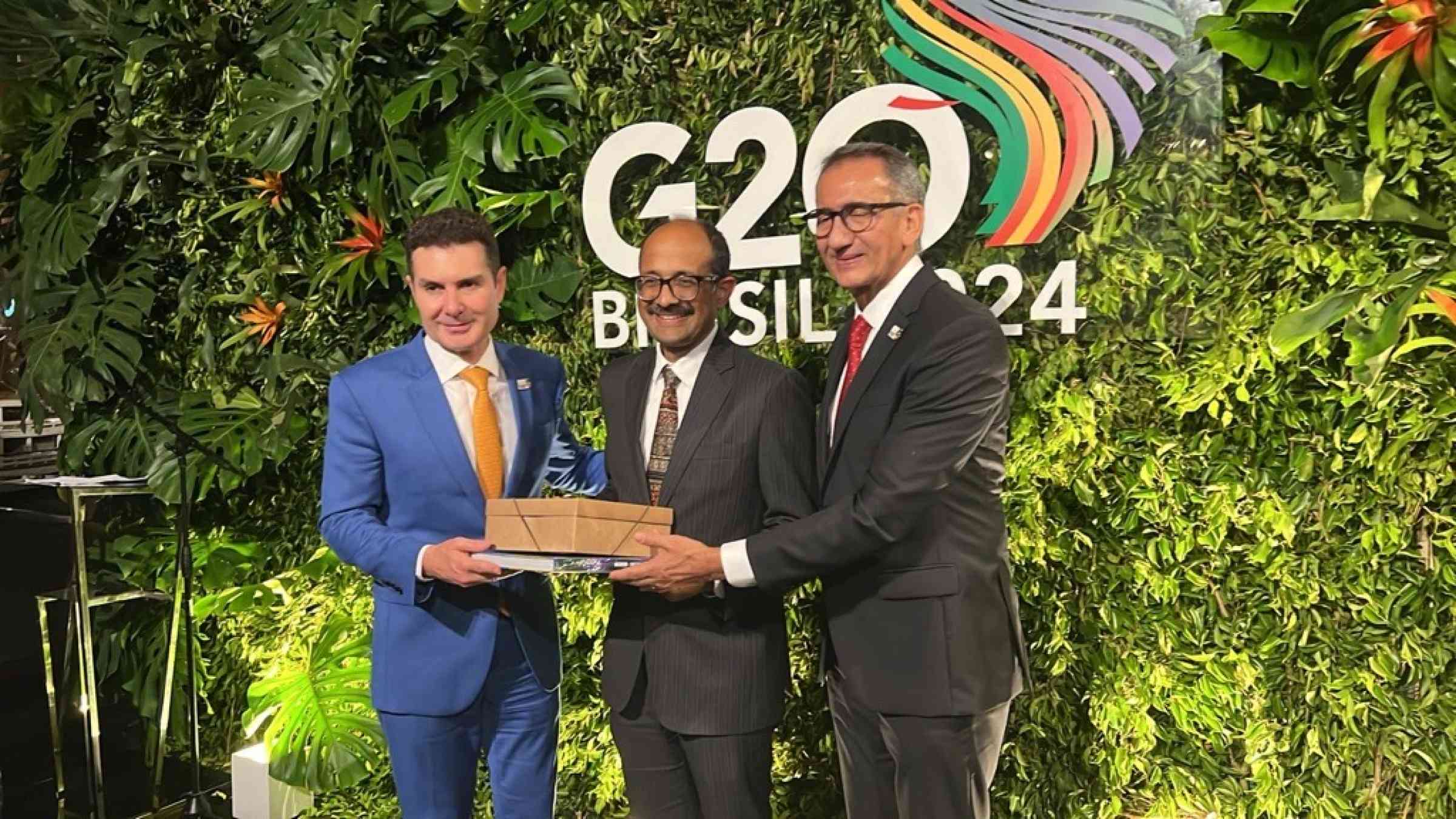G20 issues its first Ministerial Declaration on Disaster Risk Reduction

Jader Barbalho Filho, Brazil's Minister of Cities, SRSG Kamal Kishore, and Mr. Waldez Góes, Brazil's Minister of Integration and Regional Development in city of Belém, which hosted the 4th DRR Working Group Meeting of the year.
The United Nations for Disaster Risk Reduction (UNDRR) welcomes the Ministerial Declaration issued by the G20 as a stepping stone towards the integration of disaster risk reduction into the global economic architecture and development discourse.
In the port city of Belém, Brazil, participating G20 ministers and delegates adopted a Ministerial Declaration that called for greater action to accelerate the implementation of the Sendai Framework for Disaster Risk Reduction, which is the global blueprint for reducing disaster losses by the year 2030.
With news of the tragic floods in Spain reminding participants of the growing human and economic cost of disasters, the adoption occurred at the conclusion of the first ministerial meeting of the G20 Disaster Risk Reduction Working Group, convened by the Government of Brazil, which holds the current presidency of the G20.
The Declaration also calls on the Working Group and its knowledge partners to explore the development of voluntary high-level principles in support of Priority 3 of the Sendai Framework, which calls for investing in disaster risk reduction for resilience, for the consideration of the G20 in 2025.
This Ministerial Declaration comes days before the start of the United Nations Climate Change Conference, COP29, in Azerbaijan, which is being dubbed the “Finance COP” and where reducing the impact of climate-related disasters is expected to be high on the agenda.
“Whether in Africa, Asia, or the Americas, the growing cost of disasters is becoming a threat to economic prosperity and sustainable development. That is why I welcome the G20 Ministerial Declaration which shows leadership from the world’s largest economies in tackling the unprecedented rise in disaster risks, many of them driven by the climate crisis,” said Kamal Kishore, the Special Representative of the UN Secretary-General for Disaster Risk Reduction and the Head of UNDRR, adding:
“We need to build on this momentum to ensure that all aspects of development and investment, from public and private sources, are guided by an understanding of disaster risks and a commitment to reducing them. That is the only way we can stop the creation of risks and ultimately stop disasters.”
As the chair of the G20 Disaster Risk Reduction Working Group, which was established by India during its presidency of the G20 in 2023, Brazil ensured that deliberation of the group built on the progress made to date around five priority areas, while dedicating extra attention to the plight of the least fortunate, though a new priority on “combating inequalities and reducing vulnerabilities.” This emphasis is made clear in the Ministerial Declaration, which calls for inclusive approaches in disaster risk management to ensure resilience is achieved by all.
In the margins of the G20 Working Group meetings, several side events took place, including a high-level one on the implementation of the UN Secretary-General’s Call to Action on Extreme Heat. Several knowledge products were also launched in support of the members’ deliberations, including by UNESCO, the World Meteorological Organization, the Coalition for Disaster Resilient Infrastructure, and the Risk-informed Early Action Partnership (REAP).
UNDRR serves as the lead knowledge partner of the working group and has supported all the meetings of the working group since its inception.
For media inquiries, please email: Omar Amach, UNDRR Public Information Officer, at [email protected]
About the UN Office for Disaster Risk Reduction (UNDRR)
UNDRR is the lead agency in the United Nations on disaster risk reduction. It provides leadership, expertise, and tools to enable countries to understand and act on disaster risks before they become disasters. UNDRR's work is guided by the Sendai Framework for Disaster Risk Reduction 2015-2030, which aims to achieve a substantial reduction in disaster risk and losses by the year 2030.